You may notice your vision changing as you get older. For many people, this means needing glasses for the first time or switching to a stronger prescription. But what does it mean if your vision seems to get better all on its own?
Perhaps surprisingly, this isn’t always a positive sign. A sudden improvement in eyesight is often a signal of changes within your eye that require a professional examination. Let’s explore why this might happen, what it means for your family’s eye health, and how our dedicated team can help.
How Vision Typically Changes As We Age
As the years go by, the lenses inside our eyes naturally become less flexible. This is a normal part of aging that affects our ability to focus on close-up objects. It’s also a common reason why many people start to need reading glasses as they enter their 40s.
Common Age-Related Eye Conditions
These natural changes can sometimes lead to more specific conditions. Routine eye exams are a great way to monitor your eye health as you age. Some common conditions we look for include:
- Presbyopia—An age-related condition that makes it harder to see up-close
- Cataracts—An often age-related cloudiness of the lens that can make vision seem foggy.
- Age-Related Macular Degeneration (AMD)—this condition affects your sharp, central vision used for reading and driving.
However, these conditions usually cause vision to slowly decline, not improve. That’s why any sudden improvement is worth paying attention to—it’s a sign that something has changed and should be looked at by an eye doctor.
Why Did My Eyesight Suddenly Get Better?
An unexpected improvement in your vision may seem like a good thing, but it’s often a sign that your eyes are changing rapidly. Several factors could cause such change.
‘Second Sight’
Second sight is a temporary improvement in your near vision. It often happens when a cataract begins to form on the lens of your eye. The developing cataract can change the shape of your lens, which briefly corrects farsightedness and allows you to read without glasses again.
This effect does not last. As the cataract continues to develop, your vision will get worse again, affecting both distance and near sight. It’s a clear signal that it’s time for an eye exam.
Health Conditions Affect the Eyes
Sometimes, changes in your overall health can directly affect your eyes. For example, fluctuations in blood sugar levels can cause blurry vision for those with diabetes. Regular diabetic eye exams are crucial for monitoring these changes. When blood sugar is brought under control, vision can stabilize and even seem to improve as the blurriness goes away.
This is not a true improvement of your prescription, but rather a return to your eye’s normal state.
Lifestyle Choices
Making positive changes to your daily habits can support your eye health. For instance, a diet rich in eye-friendly nutrients like leafy greens and colorful fruits can provide benefits to your vision. These healthy choices help protect your vision over the long term, but are less likely to cause a sudden, significant improvement on their own.
Can Your Eyesight Get Better Naturally
Many people wonder if they can reverse common vision problems without medical procedures. While certain habits are wonderful for supporting healthy eyes, they typically don’t change your actual prescription. Let’s have a look at some common beliefs.
Eye Exercises & Healthy Habits
You may have heard about eye exercises that claim to correct your vision. These exercises can help relieve computer vision syndrome, especially if you or your kids spend a lot of time on digital screens. A healthy diet also provides the nutrients that help protect your eye tissues from damage.
These are fantastic habits for your family to adopt for overall wellness. However, they won’t correct a refractive error like nearsightedness or astigmatism. These conditions are related to the physical shape of your eye, and they cannot be cured by exercise.
Does Not Wearing Glasses Improve Eyesight?
This is a common myth we hear from patients. Some people believe that not wearing their glasses will force their eyes to become stronger. In reality, your glasses are a tool to help you see clearly, but they don’t permanently change the structure of your eyes.
Not wearing your glasses when you need them just leads to eye strain, headaches, and blurry vision. It’s much better for your comfort and safety to wear the correct prescription. This helps your eyes work efficiently without the extra effort.
When Should You See An Optometrist In Reno
Any sudden change in your vision—whether it gets better or worse—is a reason to see an optometrist that Reno families trust. An improvement might feel like a win, but it can also signal a developing eye condition that needs attention.
It’s always best to get a clear and complete picture of what’s happening.
How Can You Protect Your Family’s Vision
Your eyesight is a key part of how you experience the world. Regular eye exams are important for everyone in your family, no matter their age or how well they currently see. A yearly check-up helps us track changes over time and catch potential issues early.
If you’ve noticed any changes in your vision, or if it has just been a while since your last eye exam, you should connect with your optometrist. We can provide peace of mind and a clear path forward for your eye health.At Dr. Jennifer L. Shane & Associates, we’re here to support your family’s vision. We care about the person behind the eyes and are dedicated to providing thorough care. Schedule your family’s next eye exams with us today!



